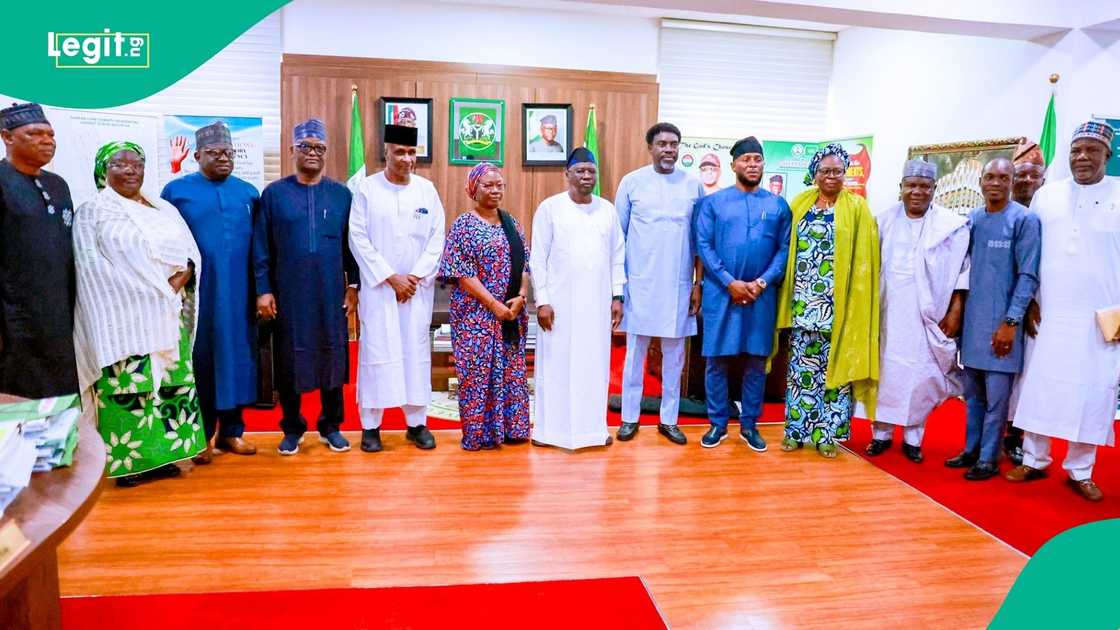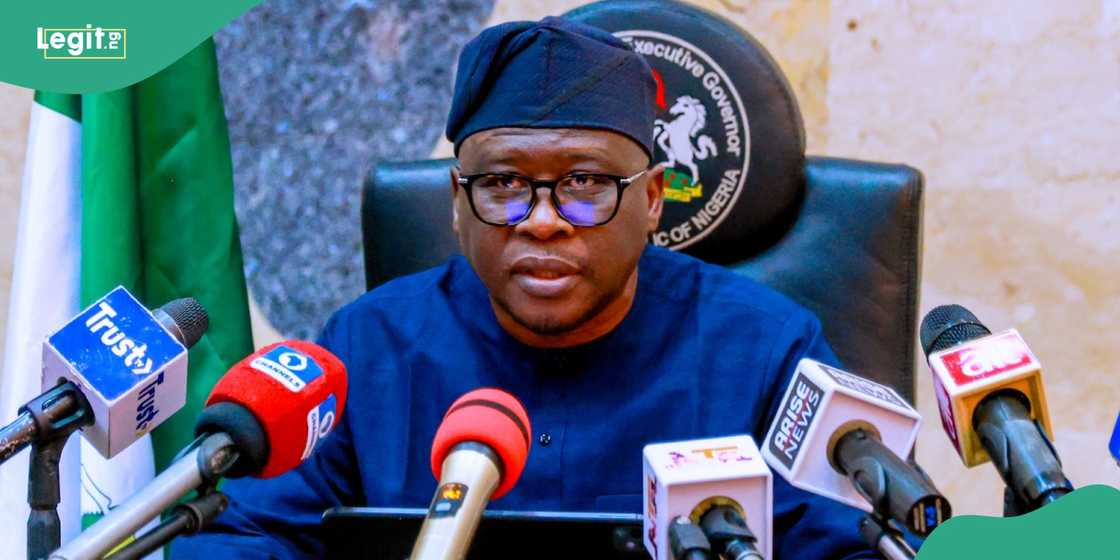Adamawa State has stepped firmly into the future by entering new agreements aimed at boosting its energy sector and transforming transportation. Officials from the state government have formalised collaboration with A4&T Power Solutions Limited and Sparrow Mobility Limited, setting ambitious targets for sustainable growth, electrification, and modern mobility for the region’s population.
The official signing of the Memorandum of Understanding (MoU) took place at the Government House in Yola. Governor Ahmadu Umaru Fintiri hailed these deals as a milestone in Adamawa’s ongoing journey toward economic expansion, industrial innovation, and the upliftment of living conditions within the state. According to the governor, these partnerships reflect the administration’s commitment to progressive development and long-term prosperity for Adamawans.
A statement released on Monday, September 1, emphasized the significance of state-level support for these projects. Governor Fintiri assured the private sector partners that the state government would provide all necessary encouragement and logistical assistance as the initiatives roll out. He highlighted these moves as vital signals of investor confidence in Adamawa, expressing optimism about the potential benefits for jobs, education, and everyday life.
“Reliable electricity will drive industries, agriculture, and job creation, while e-mobility will provide safer transport, reduce emissions, and open job opportunities for our youths.”
Adamawa’s Ambitious Power Drive: 15MW Target by 2029
Central to the agreements is the MoU between Adamawa and A4&T Power Solutions, which focuses on statewide electrification. Hon. Adamu Atiku, the Commissioner for Works and Energy Development, detailed the project scope: an investment exceeding ₦80 billion will be channelled into a range of solutions such as mini-grids, hybrid energy systems, and solar power plants. The strategic aim is to generate and consistently supply 15 megawatts (MW) of electricity within five years—an impressive leap, considering historical deficits in power supply across northeastern states.
Mr. Ayo Ademilua, CEO of A4&T Power Group, noted that the rollout will involve both rural and urban communities, deploying solar installations, hybrid grids combining renewable and conventional sources, and customer-focused mini-grids to ensure that power reaches even those living at the state’s margins. Detailed project monitoring and phased targets are expected to ensure transparency and efficiency, with independent audits to track milestones at each stage.

Photo credit: @GovernorAUF
Source: Twitter
“We have mapped out key areas across local governments in Adamawa to identify the right type of projects needed. Some will require interconnected mini-grids, others isolated mini-grids, while some will benefit from longer distribution systems. With more than 12 years of experience in deploying power projects in Nigeria, we are committed to providing tailored solutions.”
Sparrow Mobility: 10,000 Electric Bikes Set for Deployment
Simultaneously, the state government’s partnership with Sparrow Mobility Limited is geared at redefining transportation modes by prioritising electric mobility. Over the next two years, Sparrow Mobility intends to introduce up to 10,000 electric motorcycles and bicycles throughout Adamawa. This will address both urban congestion and rural mobility issues, as well as contribute to environmentally friendly commuting.
Another critical component of the plan is the setup of charging infrastructures and assembly plants within the state. Commissioner for Transport, Wunfe Anthony, stressed during the signing that this initiative goes beyond vehicle supply—it aims to stimulate local industry, foster technical skills development among youths, and eventually position Adamawa as a manufacturing hub for electric vehicles in the region. “Our goal is to ensure transportation is modern, safe, and sustainable—keeping pace with global trends and local needs,” he said.
“This partnership will move Adamawa State towards clean energy, reduce carbon emissions, and promote eco-friendly transportation. It will bring immense benefits to both the environment and our citizens.”
During his remarks, Governor Fintiri underscored that these agreements are not just about new technology or infrastructure; they are part of a holistic vision for Adamawa’s inclusive and sustainable development. He invited local entrepreneurs, vocational trainers, and community groups to find their place within these projects, encouraging skills transfer and economic participation across demographic lines.
Education Reforms: Ban on “Maker Day” Celebrations
In related developments, the Adamawa State Ministry of Education has put a stop to the “Maker Day” celebration traditionally marked by Senior Secondary Certificate Examination candidates. The decision, according to officials, is designed to reinforce positive behavioral changes in schools and uphold higher standards of discipline and academic focus. The ministry’s new directive aligns with Governor Fintiri’s NOWAHALAZONE education agenda, which seeks to equip students with improved learning skills and foster better moral conduct.
Education board representatives explained that the clampdown on such celebrations is in line with efforts to create a responsible and disciplined academic environment. The board has pledged ongoing reforms to ensure that Adamawa’s growing investments in physical infrastructure are matched by progress in educational outcomes and social integrity among young people.
Broader Context: Local and Regional Impacts
The dual investments in infrastructure and human capital place Adamawa among states actively pursuing contemporary solutions to old challenges. Persistent electricity shortfalls have long stifled enterprise, education, and healthcare, not just in Adamawa but across Northern Nigeria. By aiming to add 15MW within five years, Adamawa positions itself ahead of peers and sets a benchmark for states such as Borno, Gombe, and Taraba, where similar needs exist.
Introducing electric bikes and supporting infrastructure echoes wider African trends, particularly seen in cities like Kigali and Accra, where micro-mobility is reshaping urban life. For Adamawa, success will hinge on public adoption, investment in technical training, and access to affordable financing for would-be riders and businesses.
- Economic Benefits: Job creation through energy and mobility sectors, from assembly plants to repair workshops and technical instruction.
- Social Impact: Improved access to education and markets for communities far from the electric grid or major roadways.
- Environmental Advantage: Reduced emissions thanks to clean energy sources and electric vehicles, aligning with broader sustainability goals.
Challenges and Next Steps
While state authorities and partners exude optimism, challenges remain. Sustained funding, timely rollout of technology, addressing the needs of remote communities, and achieving broad public acceptance of electric mobility will all shape the ultimate impact. Officials note that community engagement and transparent progress updates will be integral as the projects advance.
Observers from across Nigeria—including energy sector analysts and transport experts—caution that maintaining momentum will require consistent oversight and adaptation. “If Adamawa can keep projects on track and share lessons learned, it could inspire other states dealing with similar infrastructural gaps,” commented a Abuja-based policy analyst.
Have Your Say: What Lies Ahead for Adamawa?
This wave of new initiatives is poised to bring transformative change to Adamawa, but their outcome depends on the collective efforts of government, private partners, and everyday residents. Do you believe these investments in energy, transportation, and education will meet their targets and truly enhance lives in the state? How should local communities and youth position themselves to benefit from these developments?
What’s your view? Drop your comment below—and for in-depth updates on Adamawa’s journey and more stories from Nigeria and across Africa, follow us and join the conversation!
For questions or general support, drop us a message at support@nowahalazone.com.
Want to discuss education, tech, or business news that matters in West Africa? Connect with us on Facebook, X (Twitter), and Instagram for insights, discussions, and the latest updates!










